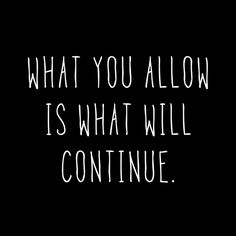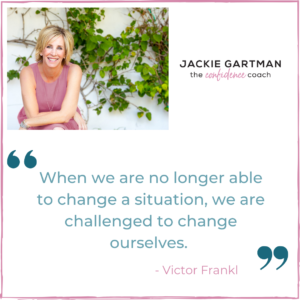
My daughter, Lindsay just graduated from college in June and is traveling through Europe for five weeks with her best friend. They’ve been friends since they were tweens, and they’ve been planning this adventure since their sophmore year in high school. She’s been gone for three weeks and was having the time of her life—until last week, when she called me in tears.
Turns out she and her best friend haven’t been getting along so well. I always say that if you want to know who someone really is, travel with them. Because if you’ve traveled at all, you know that nothing ever goes according to plan—and when plans go out the window, true natures are revealed.
In Lindsay’s case, the issues were minor, but numerable. The hostel where she and her friend were staying was hot, the beds were uncomfortable, their trains were delayed, and not everyone has been kind or helpful. They were both exhausted and more than a little cranky. Her best friend was complaining—according to Lindsay, not just a little, but a lot. And when Lindsay tried to intervene, he turned on her.
She called me and said, “I need some life coaching.” (aka music to a Life Coach/Mother’s ear!)
So, after listening to her complain and cry, I said with compassion, “You need to set boundaries.”
She had a ready response.“But if I set a boundary, he’ll just get mad at me and I don’t think he’ll change.”
“Whoa,” I said. We don’t set boundaries to change the other person’s behavior or to control them. We set boundaries so that we stay in our integrity. If we don’t speak our truth, we are not in a real relationship. We are in a pretend relationship: pretending to be friends, pretending to be intimate, pretending to be close—but we’re not. And, worse, when we don’t set boundaries, we feel resentful and blame the other person for continuing the behavior that we tacitly condone by not speaking up.
Lindsay was essentially trading honesty for harmony in an effort to keep the peace. She wasn’t telling it like it is because she was afraid of his reaction, maybe even afraid she would lose a friendship.
She was people-pleasing. And ironically, in not setting a boundary, she was losing out on the very thing she was striving for: peace. When she allowed her friend to complain and obsess without letting him know how his behavior impacted her, she was inadvertantly giving him permission to continue the behavior. And guess what? Not only did the behavior continue, but she ended up feeling resentful.
When we stay silent or do something we don’t really want to do—like when you pick up the phone during dinner and you don’t want to talk to that person, or when you go to a party out of obligation, or say yes to a volunteer position that you don’t want, it’s basically lying. Lying is not only unkind but it’s uncomfortable. We are out of integrity with ourselves and what we want.
The other piece of this is enforcing your boundaries. Some of us think we’re setting boundaries when we let others know our feelings—“I can’t sleep with the radio on, so please be quiet after 11 p.m.”—but without enforcement, boundaries mean bupkis.
In fact, if you don’t enforce your boundary, you are merely making threats, and threats only serve to undermine the trust in a relationship. Enforcing means letting the person know what you will do or not do if the behavior continues—and then following through. In Lindsay’s case, she proposed to her friend that they each got three minutes to complain. Her friend also gave her permission to tell him to stop if he continued to vent. If that didn’t work, she told him, she would walk away for a little time-out from the negativity.
Enforcing boundaries takes energy. It also takes courage. But I promise you that setting and enforcing boundaries will make you feel stronger, more empowered, and the hero of your story. It can also lead to a mutually respectful, caring, and supportive relationship with others, and, best of all, with yourself.
Here’s how to set and enforce boundaries:
- Take responsibility for your feelings. Think about the people or person that you feel negative about. What feelings get triggered? Anger, resentment, hurt?
- Identify what boundary has been crossed. Did someone borrow money and not repay you when they said they would? Did someone call you a name? Are your clients using your cell phone to call you on weekends? What are the things they are doing or saying that are unacceptable? Are they gossiping? Telling you what you should or shouldn’t eat, or giving you unsolicited advice?
- Recognize your expectations. Your boundary will be wobbly if you don’t examine your expectations. For example, when you think, “This person shouldn’t be complaining so much,” you are arguing with reality. He’s complaining. Period. Whether he should or shouldn’t is just your opinion, and mistaking your opinion for objective fact will only leave you feeling more irritated and powerless.
- Express yo self! I feel _____ when you do ____. That’s the formula. Let’s try it out: I feel irritated when you spend the morning talking about how poorly you slept, how mean the person at the train station was, and how the rest of the trip is going to suck. Or: I feel uncomfortable when you criticize our friend Lucy behind her back.
- What about the backlash? That’s what Lindsay was afraid of. My secret formula (and this ain’t no guarantee) is to say right off the bat, “I have something to share with you but my fear is (insert the backlash you’re anticipating, such as “You will get defensive and yell at me”). This is often enough to forestall the very backlash you fear. But if this doesn’t do the trick, don’t defend or justify your position. Simply repeat the boundary and the consequences of crossing it.
- Enforce the boundary. “If you continue to complain after three minutes, I will leave the table and go to the museum by myself.” Repeat and be consistent.
Last, but not least, be willing to accept that you may potentially lose a relationship with another. That can be sad, but it can also be okay. Because the bottom line is that the relationship you most need to protect and respect is the one you have with yourself.




